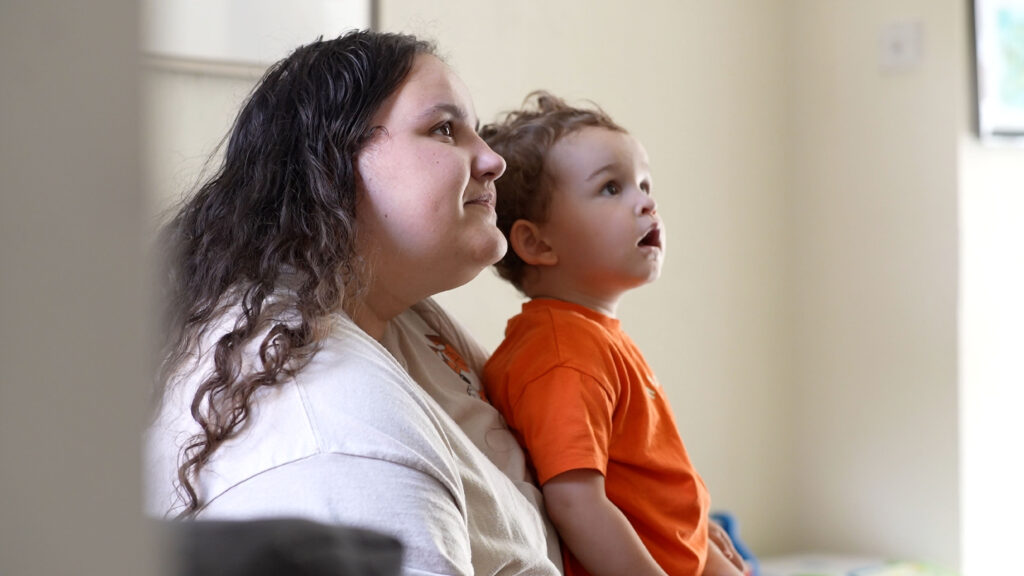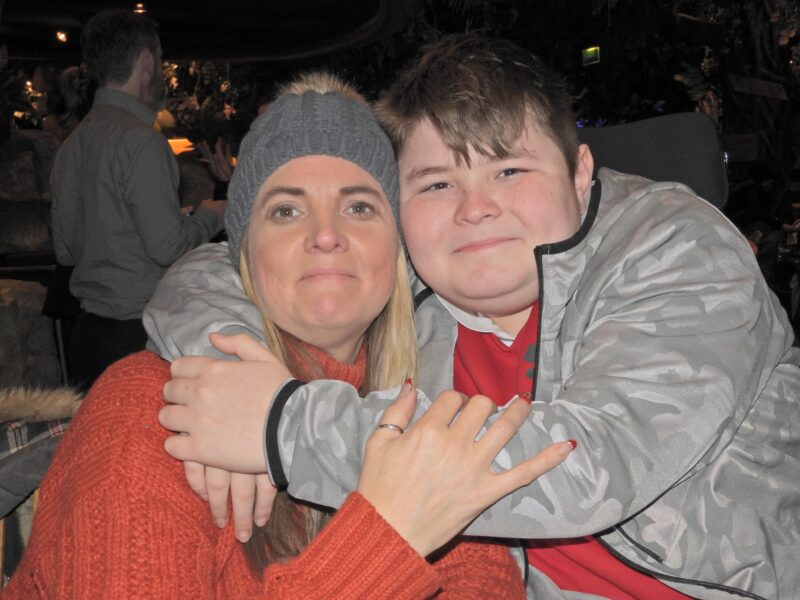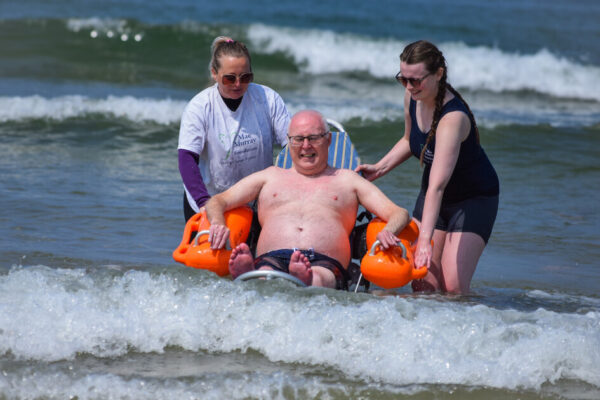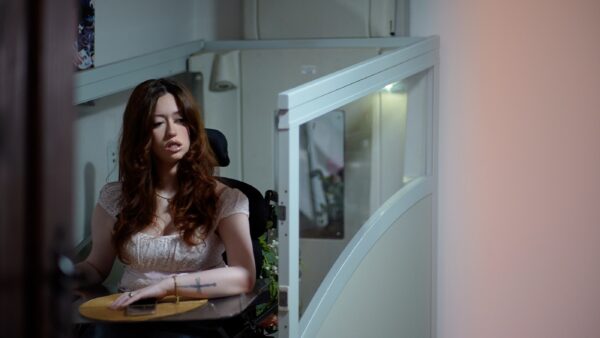Bethany found out she was a carrier of Duchenne muscular dystrophy early in her pregnancy but had to wait nearly a year until her son, Teddy was three months old to find out he had the condition. The news was delivered over the phone with no offer of support or resources. Bethany shares the agony of wait after wait, the isolation, and how finding the muscle wasting community has helped the family begin to process Teddy’s diagnosis, who is now nearly three.
“I was told my son had Duchenne over the phone”

When I was pregnant with Teddy, my mum mentioned that my gran had been a carrier of Duchenne muscular dystrophy (DMD). I didn’t know much about it then, but I knew enough to ask for genetic testing. I thought I was just being cautious… I never imagining how deeply it would affect our lives.
Quite early on in my pregnancy I got the call to tell me I was also carrier. Just like that, the joy of my pregnancy shifted. We were offered testing for Teddy while I was still pregnant, but it came with risks, so we decided to wait. But that waiting was sole destroying.
The gender reveal is meant to be a moment of celebration, but when we found out we were having a boy, the first question from everyone was, “Is he going to be ok?” I didn’t have an answer. That one question stole so much joy.
Pregnancy is usually filled with dreams of your child’s future. Imagining their first steps, their wedding day, watching them grow up and live a full, happy life. Suddenly, all of those dreams became uncertain. There was a weight hanging over everything, and with it came fear and anxiety like I had never experienced before.
We were refused support and left to struggle alone
When Teddy was born, the doctors did a blood test when he was just two days old. Then came more waiting. We expected to receive the results quite quickly, but it took nearly three months to get the result. None of us knew how to talk to each other about it. The silence between us was heavy. Long days and sleepless nights, swinging between hope and dread.
We had initially been given a face-to-face appointment for the results, but it was changed to a phone call. That gave us hope — after all, who delivers devastating news over the phone?
But they did.
“Nobody should be told their child has a fatal condition over the phone. It felt clinical. Detached.”
Life-changing words spoken into a phone with no one there to catch us when we fell apart.
It took seven months after the diagnosis before we got an in-person appointment to discuss what this meant. We weren’t offered emotional support, no information, no leaflets, nothing to help us process what was happening. We were completely on our own.
When we finally sat down with a consultant — me, my partner, and my parents — we asked about support groups and to be put in touch with others who would understand what we were going through. We were simply told it wasn’t a good idea and left the appointment feeling more alone than ever.
Finding the muscle wasting community and finding hope
I desperately needed to speak to someone who had been through this before, who could tell me what life really looked like after a Duchenne diagnosis. Google only showed horror stories. But the first time we met up with a family who had a 13 year old son with Duchenne, we saw a different side. They told us that, yes it’s hard, but there’s still joy. There are still smiles and holidays and birthday parties. Just because he has Duchenne doesn’t mean he won’t have a happy life.
It took a long time before we could do normal family things without being consumed by the diagnosis. But our mindset began to shift when we found connections.
“After meeting that family, we didn’t feel alone for the first time since finding out I was a carrier. It gave us the confidence to research what support was out there.”
That’s how we found Muscular Dystrophy UK and that’s when things really began to turn around.
I joined a Virtual Support Group for newly diagnosed families which was beyond helpful to be around parents who were all at the same stage in the processing journey. I’m still in touch with two of the mums through a WhatsApp group we set up. That kind of connection — someone who gets it without needing explanation — is invaluable.
We’ve been to the charity’s muscle groups, an accessible beach day, and other events where Teddy, has met children and adults in wheelchairs. He sees that it’s ok. That he’s not alone. And I see that too.
What’s helped me most is becoming part of the Muscular Dystrophy UK community. A lifeline during the darkest days. A reminder that while our path might look different, it’s still filled with love and joy.


